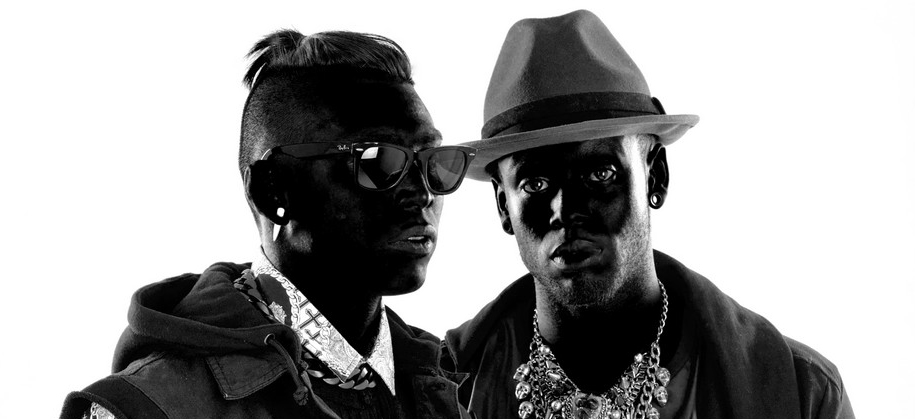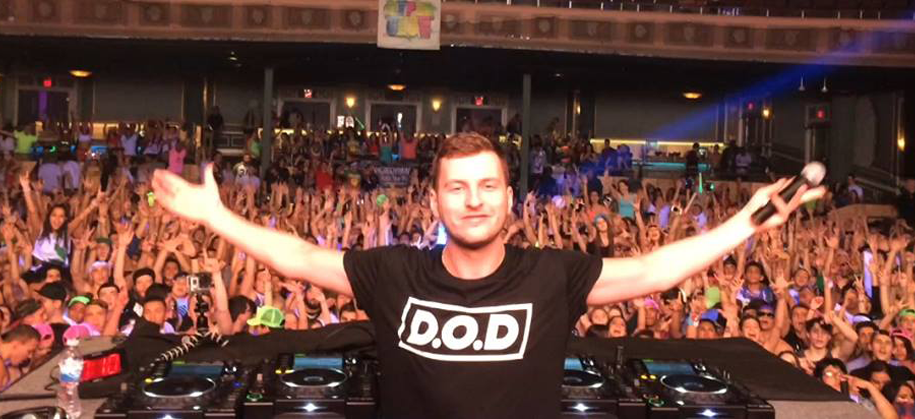
Few moments are more sacred than the reprieve Saturday night provides from the daily grind of school and work. Its importance is meant to be emphasized, and thus, a feature dedicated to “doing the night right” was born. Saturday Night Sessions are set around energizing mixes meant to get the (socially distanced) party started. New or old, each episode has one cornerstone thing in similarity: they serve as the perfect backdrop for the weekend pregame.
KSHMR is a household name in the electronic music community, but like many of the genre’s impactful acts, he has never actually released a full length studio album. A trend unique to the electronic music industry, Niles Hollowell-Dhar launched his KSHMR alias in 2014 after years of being one half of production duo The Cataracts. KSHMR marked the beginning of his career as a solo artist, and it took practically no time for the project to gain momentum. This is in no small part thanks to the astounding success of his 2015 single with Tiësto titled “Secrets” featuring Vassy, which gave the artist the floor to prove his unique approach to production. Prove this he did as fans celebrated his distinctive sound netting the artist mainstage bookings across the world.
California-born Hollowell-Dhar grew up in a household with an Indian father and an American mother. His father’s origins strongly influenced the KSHMR project, and he shared years ago that he is a “guy who makes Indian-sounding electronic music, incorporating Indian instruments.” Hollowell-Dhar’s sound has built upon this foundation as the years have gone on, and when he shared that fans could expect a full length album from him in 2021, many wondered what the LP would yield.
Harmonica Andromeda, like all of the producer’s longer bodies of work, is a sonic journey that is part of a larger narrative. The 14-tracks follow the story of a young boy who has just lost his mother. Upon her passing, she leaves him instructions to embark on an adventure exploring different worlds. Each song takes the listener to a new destination, and only three of the releases came out before the album’s March 19 full release.
The anticipation for Harmonica Andromeda only heightened after the producer faced a slew of skeptics in reaction to a January 8 Tweet, which was sent just a week before the first single release, “The World We Left Behind” featuring KARRA. He writes that the album is “one of the most ambitious, maybe even one of the best electronic albums of all time…”
An artist feeling an overwhelming sense of pride over an album is not unique and is usually a given after the amount of work that goes into completing one. While many are used to artists sharing how ‘proud’ or how ‘excited’ they are to share their art with the world, Hollowell-Dhar’s sentiments that Harmonica Andromeda is one of the most ‘ambitious’ and perhaps even one of the ‘best electronic albums of all time’ certainly piqued the interest of fans and the music community alike. He set the bar high, and many were left with immense anticipation for the March 19 release date.
When assessing community reception of Harmonica Andromeda, it seems that Hollowell-Dhar did not speak out of turn when describing the body of work. The production is nothing short of special, and it sounds unlike anything fans have heard before. The producer not only met the bar he set, but exceeded it.
He clarifies how producing Harmonica Andromeda was indeed one of the most ambitious things he has ever done, explaining his process. Hollowell-Dhar shares, “Just to be clear haha, I said it’s one of the most ambitious and maybe even one of the best. I think it is ambitious, and I think I have the authority to say that because I tried to give so much to each song and never settle for the obvious approach. Sometimes that meant the song would take two or three turns before it was done, and I think it’s rare in my experience, in dance music (for having made music for 20 years) that someone would put so much into an album – like spending a week on eight bars at the end of one song. So in terms of the effort and the details that went into these songs, I do feel it’s the most ambitious thing I’ve done, and I love it.”
When addressing the community’s reaction to his Tweet, he explains, “It’s difficult to explain how you could love something you made and not be arrogant. It’s like if you chipped away at a rock and you believed there was a gem inside, and you get to the center and say it’s the most beautiful gem. I fought to uncover the potential of each of these ideas, and it was hard just in a practical sense. It was time consuming to follow each of these ideas to their conclusion and make them work. So music is of course- it’s not like shaving rocks, but hopefully you can understand how I could be so in love with something that I’ve made and not judge me for it.”
While each song on the album is undeniably ‘special,’ there is also a specific approach to the production of Harmonica Andromeda that makes it worthy of this description. To put it simply, the producer was able to let each song evolve in multiple directions stylistically while still making the final product a pleasant holistic listening experience. This meant producing each small section of each individual release with painstaking detail and ‘purpose.’ The final output was so dependent on the extensive and well thought out smaller sections that comprised the larger sound of each song that it took him two years with an accelerated production period during quarantine to complete the creative process.
He discusses this when he shares, “With a few exceptions, most of the songs were difficult. Some were especially difficult. ‘The Little Voice’ especially, because each section is a departure from the last and how it continues on this trajectory upward that is not necessarily difficult in itself to make, but making something that changes that much coherent – the arc, the energy, its momentum – is difficult.”
He continues, “When I first started making music, I wanted to put everything into every song and then my music sucked, so I simplified everything after that. With this album, I said ‘fuck it, maybe I’m good enough at music now that I could fit a lot of ideas into one thing, and make it work.’ The short answer is, it’s possible, but I’m not THAT good at making music, so it took so much work once I committed to having multiple ideas in one song.”
In addition to pushing himself to his limits as a music producer, Hollowell-Dhar achieves another feat with the album release.”Paula” is the artist’s first time as KSHMR using his own vocals on a song. “Paula” is influenced by his overwhelming love for his mother, and it was born out of him imagining a world with his mother no longer in it.
While heartfelt “Paula” closes out the LP, the title single opens it. If one song could embody the KSHMR sound from 2015 until 2021, “Harmonica Andromeda” would be a top contender to represent the artist during the first third of the song. The rest of the song sets the stage for what is to come on the album. Naturally playful energy blends brilliantly with far East influences and instrumentals, but before the listener knows it, they are plunged into a guitar laced production with sweeping female vocal accents pivoting from the initial sonic influences. A collection of vocalists narrate the song in a way, guiding the listener through to each new section of the production.
In celebration of Harmonica Andromeda‘s full release, Hollowell-Dhar crafted a one-hour long Saturday Night Session to give listeners a taste of what the live experience will be like. The mix is the perfect accompaniment to a stellar body of work, and the producer leaves listeners with a parting thought, sharing, “I’ll be using the mix to show people a lot of the new album and I absolutely cannot wait for people to hear this new music.”
____________________________________________________________________________
With Lion Across the Field– you accompanied the auditory work with a children’s book and a seven person band for the live performance among other live elements. Can you talk about how you plan on bringing Harmonica Andromeda to life outside of the music itself?
KSHMR: “Because of quarantine it’s a little bit tough to bring the new album to life to the extent that you mentioned. There are restrictions because of the pandemic so having live players etc. will come in time. Right now I’m focusing on the album release event. This album is in a much different tempo so making it make sense live is my priority and it means a restructuring of the live show.”
Each song on the new LP brings the listener to a new setting. Have you been to each of these places? What inspired you to shape your album around a new location for each single?
KSHMR: “These are places that in some cases I’ve been too but that wasn’t the driving factor in deciding where the main character would go. I think we all love traveling through stories that we hear, it’s a way for us to explore places beyond our means. We can do so many things through a well crafted story so these are places that I think have been inspiring creatively to me. The locations inform the instruments and the melodies, I would say it’s more inspiration than a practical tribute for something from my own experience.”
You shared that you believe this album is one of the best electronic music albums of all time. What sets this album apart from the rest in your opinion?
KSHMR: “Just to be clear haha I said it’s one of the most ambitious and maybe even one of the best. I think it is ambitious and I think I have the authority to say that because I tried to give so much to each song and never settle for the obvious approach. Sometimes that meant the song would take two or three turns before it was done, and I think it’s rare in my experience, in dance music (for having made music for 20 years) that someone would put so much into an album like spending a week on 8 bars at the end of one song. So in terms of the effort and the details that went into these songs, I do feel it’s the most ambitious thing I’ve done and I love it . It’s difficult to explain how you could love something you made and not be arrogant. It’s like if you chipped away at a rock and you believed there was a gem inside and you get to the center and say it’s the most beautiful gem. I fought to uncover the potential of each of these ideas and it was hard just in a practical sense, it was time consuming to follow each of these ideas to their conclusion and make them work. So music is of course, it’s not like shaving rocks, but hopefully you can understand how I could be so in love with something that I’ve made and not judge me for it.”
Do you have a favorite track from the LP, or one that is most meaningful to you?
KSHMR: “There’s a song on the album called ‘Paula’ that I wrote for my Mom. For the first time as KSHMR, I used my own vocals for the track. It’s a very personal song to me. When I wrote it, I had thoughts of what it might be like when I don’t have my mom around anymore. She means so much to me, I thought about the weight of all the experiences we’ve had together and tried to put that in a song.”
How long did this LP take you to make and were any of the track’s particularly difficult for you to create/complete?
KSHMR: “It took 2 years to make the album but the pandemic was an enormous accelerant. It was maybe not even possible to make this album without quarantine because at times, when I’m touring, it felt irresponsible to experiment in ways that was necessary with this album. I usually just work on singles because I’m constantly catching flights, but I was able to spend the time and make something I’ve wanted to make for years. With a few exceptions, most of the songs were difficult. Some were especially difficult. “The Little Voice” especially, because each section is a departure from the last and how it continues on this trajectory upward that is not necessarily difficult in itself to make but making something that changes that much coherent – the arc, the energy, its momentum – is difficult. When I first started making music, I wanted to put everything into every song and then my music sucked so I simplified everything after that. With this album, I said fuck it maybe I’m good enough at music now that I could fit a lot of ideas into one thing and make it work. The short answer is, it’s possible but I’m not THAT good at making music so it took so much work once I committed to having multiple ideas in one song.”
What kind of a Saturday Night is your Saturday Night Sessions mix going to get listeners ready for?
KSHMR: “I’ll be using the mix to show people a lot of the new album. I absolutely cannot wait for people to hear this new music.”
The post Saturday Night Session 047: KSHMR proves ambition pays off with ‘Harmonica Andromeda,’ crafts stunning hour-long accompaniment appeared first on Dancing Astronaut.

















 Category:
Category: 
Earthquake Mix: